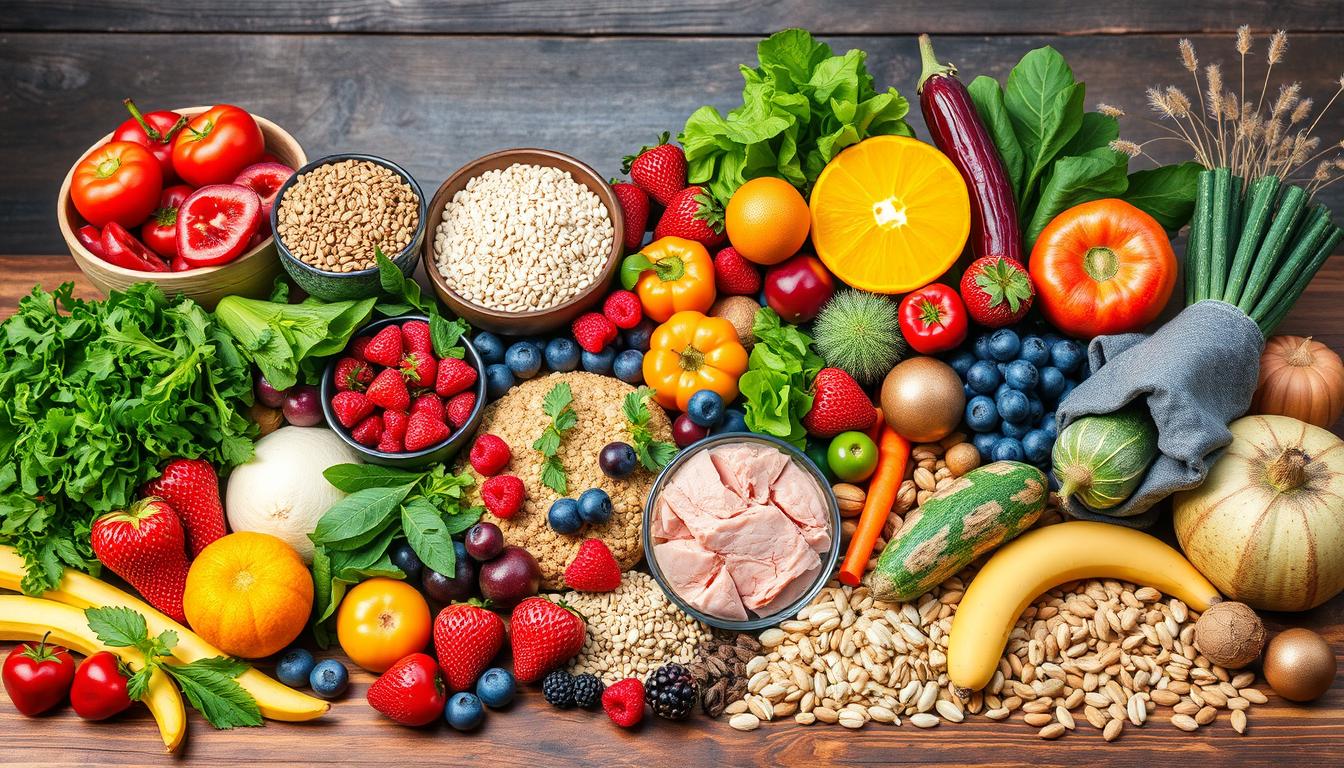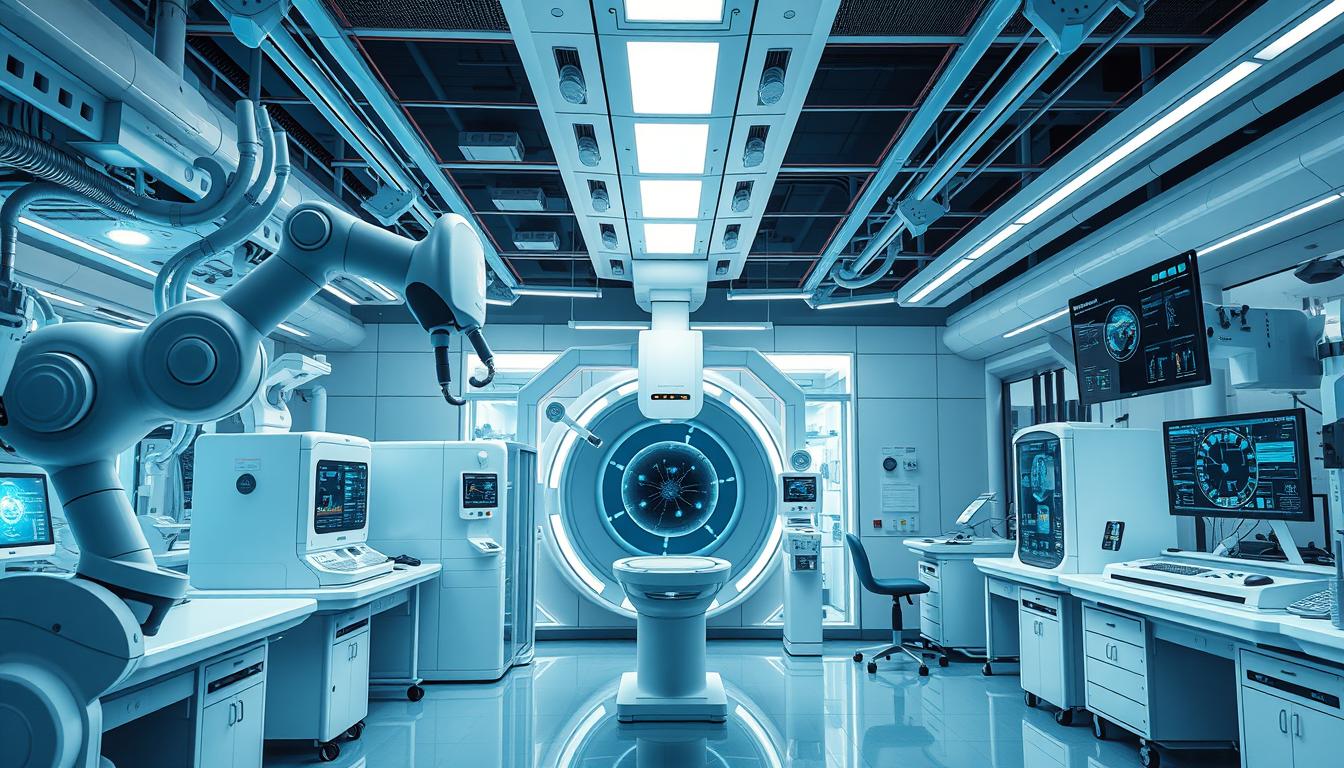Caffeine is a key part of many people’s daily lives. It’s in our morning coffee, afternoon energy drinks, and midday sodas. Knowing the safe amount to drink is important.
The FDA says healthy adults can safely have up to 400 milligrams (mg) of caffeine daily. This is about four 8-ounce cups of coffee or two 16-ounce energy drinks. But, powdered or liquid caffeine is much stronger. Just one teaspoon is like 28 cups of coffee.
How much caffeine you can handle varies. Your body weight, what medicines you take, and health issues can affect it. Pregnant women, those trying to get pregnant, and breastfeeding moms should stick to less than 200 mg daily. Too much caffeine can cause headaches, trouble sleeping, and feeling jittery.
Key Takeaways
- The FDA recommends a daily caffeine limit of 400 mg for most healthy adults.
- Caffeine sensitivity varies, and factors like body weight and medical conditions can impact tolerance.
- Pregnant women, those trying to conceive, and breastfeeding mothers should limit caffeine to less than 200 mg daily.
- Powdered or liquid caffeine products can be highly concentrated, with just one teaspoon equaling 28 cups of coffee.
- Excessive caffeine intake can lead to unpleasant side effects, such as headaches, insomnia, and irritability.
Understanding Daily Caffeine Limits and Safety Guidelines
Caffeine is found in many foods and drinks like coffee, tea, energy drinks, and sodas. It can make you feel more alert and improve your mental focus. But, it’s important to know how much is safe to avoid too much.
FDA’s Recommended Daily Caffeine Intake
The U.S. Food and Drug Administration (FDA) says 400 milligrams (mg) of caffeine a day is safe for adults. That’s about four or five cups of coffee. Yet, how much caffeine affects you can vary. Your body weight, what medicines you take, and your health can all play a part.
Risk Factors for Caffeine Sensitivity
- Body weight: People with lower body weight might feel caffeine’s effects more.
- Medications: Some medicines or supplements can make caffeine stronger.
- Individual tolerance: Some people might be more sensitive to caffeine because of their genes or past experiences.
Special Considerations for Different Age Groups
There are different guidelines for caffeine intake based on age:
- Children and teens: Energy drinks and other caffeinated products are not good for them because of their caffeine and sugar.
- Pregnant women: The American College of Obstetricians and Gynecologists suggests 200-300 mg of caffeine a day.
- Older adults: As you get older, your body might react differently to caffeine. It’s good to watch your intake and adjust as needed.
Knowing these guidelines and how caffeine affects you can help you enjoy it safely. It ensures you get the benefits without the risks.

Common Sources of Caffeine in Your Diet
Caffeine is found in many foods and drinks. Knowing where it comes from helps you control how much you have. This way, you can stay within safe limits.
Coffee is a big source of caffeine. An 8-ounce cup has 96-247 mg. Espresso, being more concentrated, has about 64 mg per 1-ounce shot.
Tea is also a key source. Black tea has 48 mg of caffeine per 8-ounce serving. Green tea has about 29 mg.
- Soft drinks, like cola, have 23-83 mg of caffeine per serving.
- Energy drinks can have a lot of caffeine, from 41 mg to 246 mg per 12-ounce can.
- Chocolate also has caffeine. Milk chocolate has about 9 mg per 1.5-ounce serving. Dark chocolate can have up to 24 mg per 1-ounce serving.
Even decaf coffee has 2-15 mg of caffeine per 8-ounce cup. Also, unexpected sources include ice cream, chewing gum, and some dietary supplements.

“Caffeine is one of the most widely consumed stimulants in the world, and understanding its sources is crucial for managing your overall intake.”
Being aware of caffeine in your diet helps you make better choices. This way, you can keep your caffeine intake safe for your health.
The Health Benefits and Risks of Caffeine
Caffeine is found in many foods and drinks like coffee, tea, energy drinks, and chocolate. It’s good in small amounts but can be risky if too much is consumed. Knowing the risks and how much to drink is key.
Positive Effects on Mental Performance and Alertness
Caffeine boosts your brain, making you more alert and focused. It works by blocking a chemical that makes you sleepy. This can improve your memory, reaction time, and mood, especially with 160 to 600 mg of caffeine.
Physical Performance Enhancement
Caffeine also helps athletes perform better. It increases adrenaline and reduces feeling tired. This can make you run faster and longer, but too much can lead to tolerance over time.
Potential Health Concerns and Side Effects
Too much caffeine can cause problems like insomnia, anxiety, and heart rate issues. It can also lead to digestive problems and addiction. People with diabetes should be careful because caffeine can affect blood sugar.
Everyone reacts differently to caffeine. Factors like genetics, age, and health can influence how it affects you. Pregnant women, kids, and people with certain health issues should be extra careful with their caffeine intake.
| Caffeine Source | Typical Caffeine Content |
|---|---|
| Cup of Coffee (8 oz) | 95-200 mg |
| Cup of Tea (8 oz) | 14-60 mg |
| Energy Drink (8 oz) | 70-150 mg |
| Cola (12 oz) | 35-45 mg |

Knowing the good and bad about caffeine helps you use it wisely. This way, it can help your health and well-being.
Signs You’re Consuming Too Much Caffeine
Caffeine is found in many drinks and foods. It can improve focus and wakefulness when used in moderation. But too much can cause unpleasant effects. Knowing the signs of too much caffeine is key to staying healthy.
Feeling jittery or restless is a common sign of too much caffeine. It can make your hands shake and feel agitated. It can also make it hard to fall asleep and reduce sleep quality.
Some people may feel anxious from caffeine. It can make you worry more and feel nervous. This can make it hard to relax and focus.
Headaches are another sign of too much caffeine. It can tighten blood vessels and cause pain. If headaches are severe or last a long time, you might have had too much caffeine.
A caffeine overdose can happen in extreme cases. It can cause fast heart rate, nausea, vomiting, and seizures. The FDA says too much caffeine can lead to seizures if consumed too quickly.
If you notice these signs, check how much caffeine you’re drinking. Adjust your intake to stay safe and healthy. Paying attention to how caffeine affects you can help you avoid its negative effects.
Smart Strategies to Manage Your Caffeine Consumption
Switching to half-caffeinated or decaf options is a smart move. Be aware of hidden caffeine in foods and supplements. This can help you keep your caffeine intake in check.
Try replacing coffee breaks with short walks or stretching. This keeps you alert without caffeine. Getting enough sleep also helps reduce caffeine dependence. A caffeine diary can help you track and manage your intake.
Choose natural sources of caffeine like coffee and tea without sugar. Avoid caffeine before bedtime if you’re sensitive. Herbal teas or lemon-infused water are great caffeine-free alternatives for staying hydrated and energized.















Buy SEO Services
I have realized that online degree is getting popular because attaining your college degree online has developed into a popular selection for many people. Many people have not had a chance to attend a regular college or university however seek the elevated earning potential and a better job that a Bachelors Degree offers. Still other people might have a diploma in one field but would wish to pursue a thing they already have an interest in.